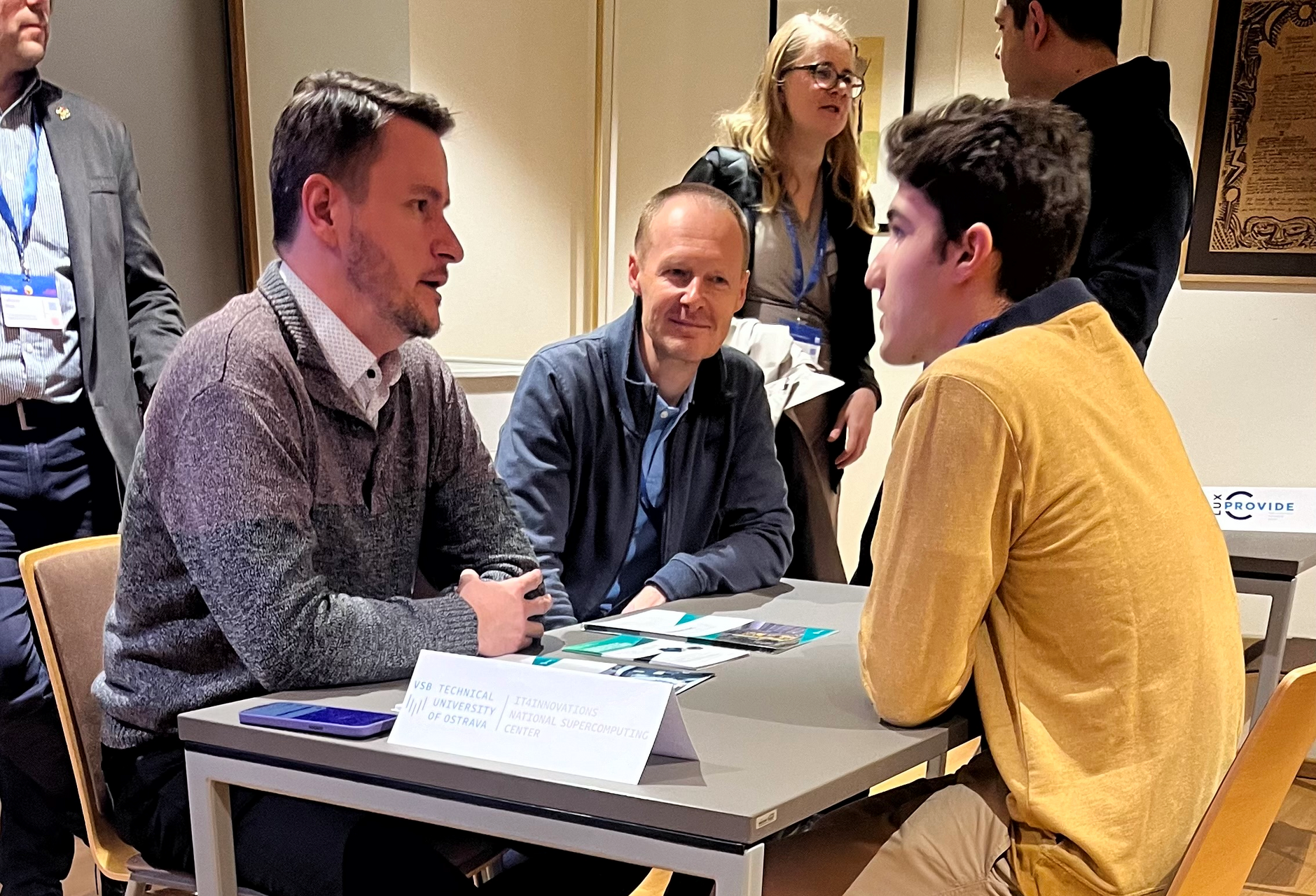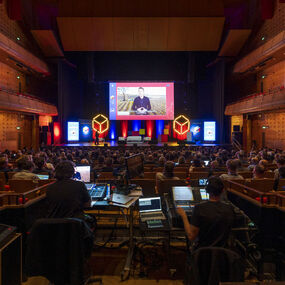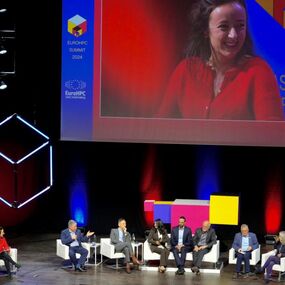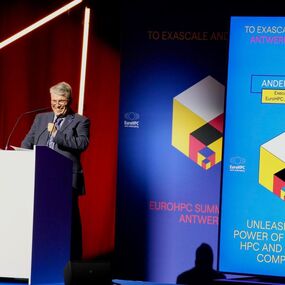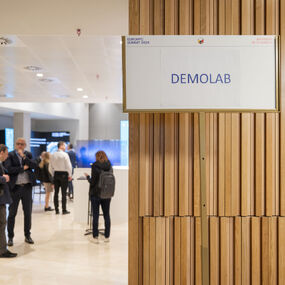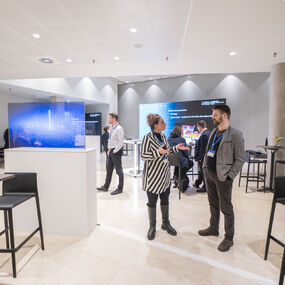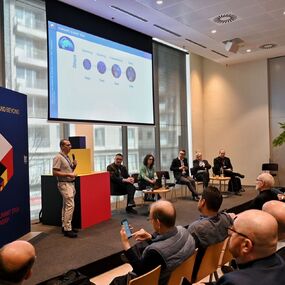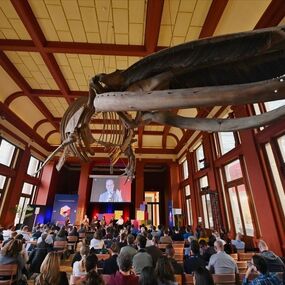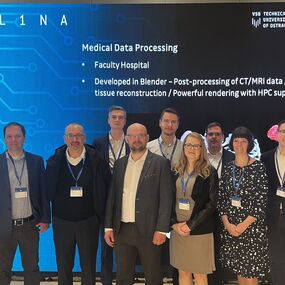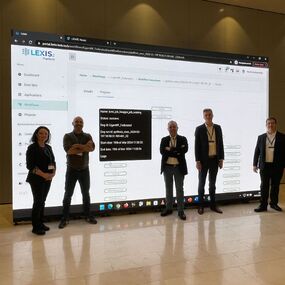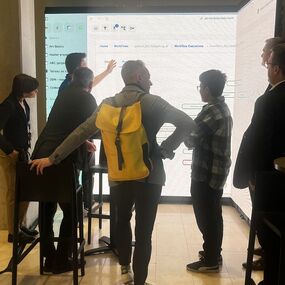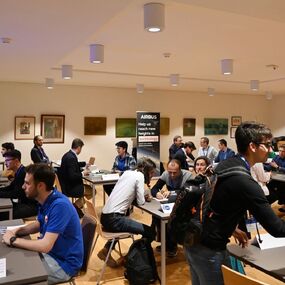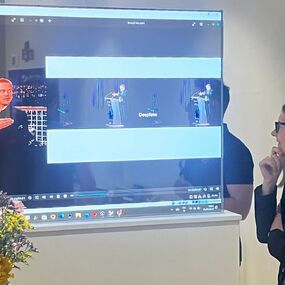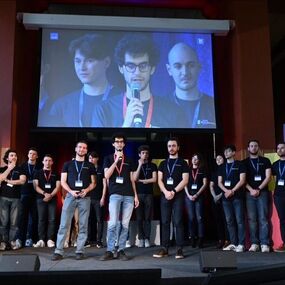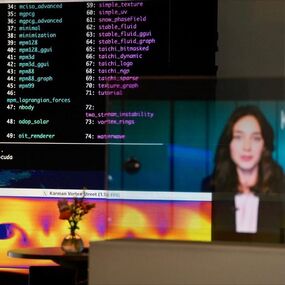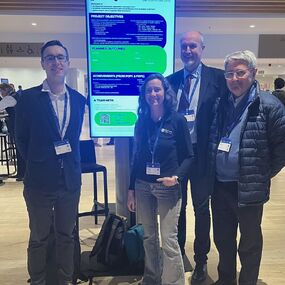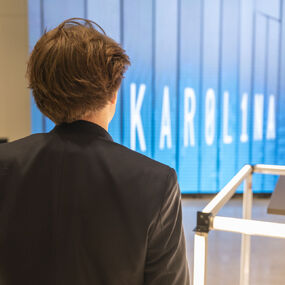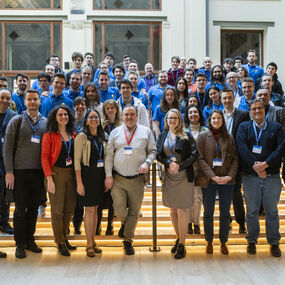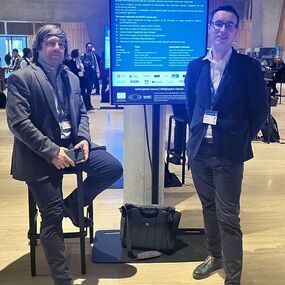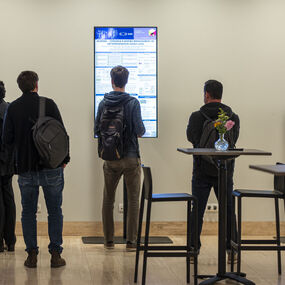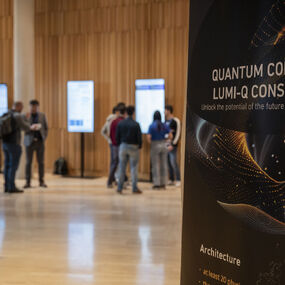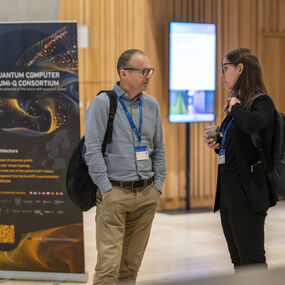On 18–21 March 2024, the annual EuroHPC Summit took place. The traditional meeting of the European HPC, AI, and QC community was attended by EU political leaders, representatives of supercomputing centres, including IT4Innovations, and industrial companies. The four-day meeting took place in Antwerp, Belgium, with 700 attendees.
The EuroHPC Summit was opened by Rafał Duczmal, Chairman of the EuroHPC JU Board of Directors, by listing the achievements of the EuroHPC Joint Undertaking and highlighting the role of the people who are fulfilling the vision of the European Union, participating countries and private partners to become a world leader in supercomputing. “All these breakthroughs will not be happening without people. Talented and well-educated people are the greatest European asset,” said Duczmal, explaining the importance of investing in European competencies and skills and focusing on expanding the possibilities of using HPC, AI, and QC technologies.
Ondřej Vysocký from the Infrastructure Research Lab was one of the speakers of the session on “How Does One Define an ‘Energy Efficient‘ HPC System? From Data to Action.” With representatives of the German HLRS supercomputing centre, the Finnish CSC, the Spanish BSC, and a software architect of EVIDEN, they discussed the energy efficiency of HPC systems, with special emphasis on what exactly it means.
“Within the session, we agreed that the widely used energy efficiency metrics do not reflect how efficiently the system is being used. However, in order to establish more appropriate metrics, it is necessary to define within the community the 'useful work' that the HPC system produces. This is one of the topics of discussion for the EE HPC WG or ETP4HPC working groups, which sponsored the panel,” adds Ondřej Vysocký.
For the second year, the conference included the EuroHPC Demo Lab, a space dedicated to the demonstration of seven supercomputers acquired with the support of the EuroHPC JU. In the Demo Lab, the magic of computing power was revealed. HPC Ambassadors - students from the EUMaster4HPC programme - introduced visitors to the supercomputers and helped with live demonstrations of the Karolina, Leonardo, Vega, LUMI, Discoverer, Meluxina, and MareNostrum5 supercomputers' power.
The Karolina supercomputer, which will celebrate its third anniversary in the summer of 2024, shone on Tuesday morning as we presented its power and importance not only for Czech science, as 35% of the supercomputer's power is reserved for EuroHPC member states. In the demo lab, the new version of the LEXIS Platform was presented. The LEXIS Platform allows federated execution of complex computing workflows and distributed data management across multiple EuroHPC JU supercomputers. A federated workflow across the Karolina and LUMI systems was demonstrated on a drug discovery application developed within the LIGATE project. The students introduced the execution of a simple HPC workflow with an AI application deployed in a container on the Karolina cluster through the LEXIS Platform as one of the new features of the platform.
The second demo application focused on the direct usage of the Karolina supercomputer for generating deep fake videos as an AI use-case requiring substantial computing power. The students took images of the conference participants in high resolution and replaced them with recordings from the conference sessions. The demo lab was highly successful and attracted many people from the audience with positive feedback and interesting discussions.
One of the conference's parallel sessions was dedicated to presenting news on the development of a European supercomputer processor, the first generation of which is expected to be on the market in the next year. Much attention was given to the RISC-V technology, which will complement ARM’s compute cores in future generations. The session was also attended by Philippe Notton, CEO and the founder of SiPearl, which is designing and will bring to market the European microprocessor also thanks to a grant from the European Commission, and Karel Masařík, President of Codasip and a member of the board of RISC-V International.
Ondřej Vysocký, who attended the session, adds: “The speakers presented a number of projects in which a lot of energy and money has been and will continue to be invested as part of the path to top-level European supercomputing processors and accelerators. The panellists agreed that the aim of European investment is not to create a completely independent ecosystem, but to support the emergence of European technologies on which the whole world would depend.”
Several EuroHPC JU research and innovation projects were presented during the conference poster session. These included the POP3, SPACE, and MaX Centres of Excellence, as well as the international projects such as ACROSS, EUMaster4HPC, EUPEX, EuroCC, IO-SEA, LIGATE, and SCALABLE, in which IT4Innovatons is involved.
IT4Innovations also participated in the EUMaster4HPC Student Challenge, where our colleague Jakub Homola mentored one of the teams. Jakub Homola explains what Giorgio Bettonte, Jacopo Palumbo, Majesa Trimmel, and the other teams (nine in total) worked on: “All teams were tasked with solving a system of linear equations using the conjugate gradient methods. They were to utilise today's HPC technologies, emphasizing not only achieved performance but also the diversity of techniques and tools employed (OpenMP, MPI, GPU, FPGA, ...), code quality and clarity, and the ability to analyse and justify the achieved performance.”
The students had the opportunity to present the results of their work at the conference, but more importantly to showcase what they had learned during their studies. They were able to share their EUMaster4HPC experiences and highlight the benefits of attending the conference, which enriched their outlook not only in terms of making new contacts within the European HPC community but also in terms of career opportunities.
A new feature of this year's conference was the quick-fire career fair, a space dedicated to connecting students from the pan-European EUMaster4HPC programme, which trains the next generation of HPC specialists, with potential employers not only from supercomputing centres but also from industrial contributors.
Tomáš Kozubek, the IT4Innovations Scientific Director, and Radovan Pasek, the Head of the IT4Innovations HPC Operations and Administrations Department at, also held discussions with the students. The students had a unique opportunity to meet experts and discuss opportunities and careers in supercomputing system administration, HPC applications, and quantum research.
The conference was followed by a full-day communication workshop of the European National Competence Centres in HPC and Centres of Excellence. The group, made up of representatives from more than 16 European countries, worked primarily on developing and linking the communication activities of the individual centres, but also on adopting and integrating new online communication formats. In addition to video content for social networks, this will result in a new podcast focusing on supercomputing.
Selected presentations from the conference can be downloaded and viewed here.

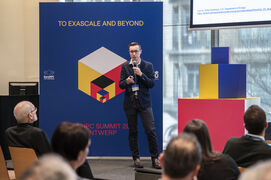
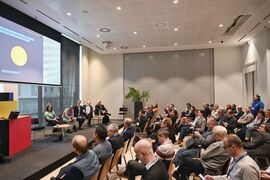.jpeg)
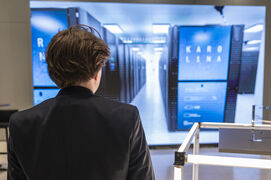
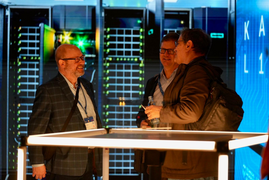
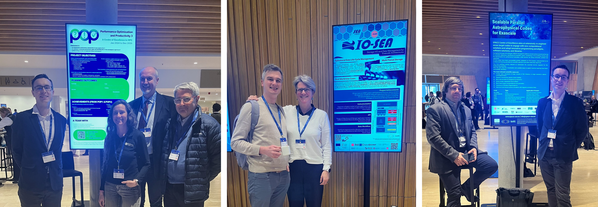
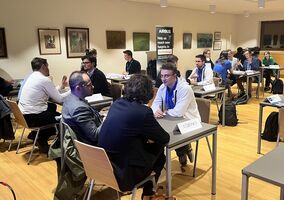.jpeg)
